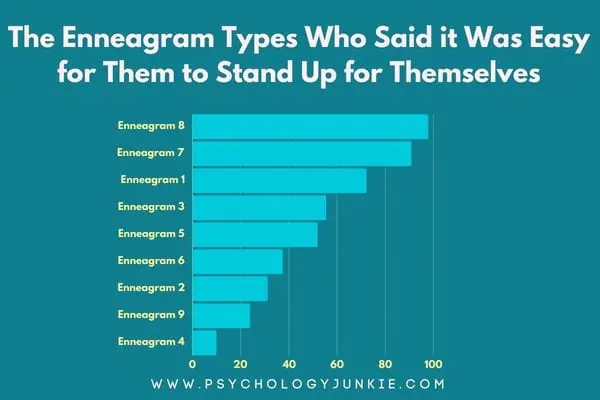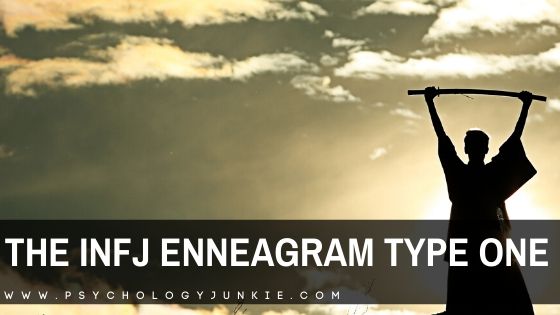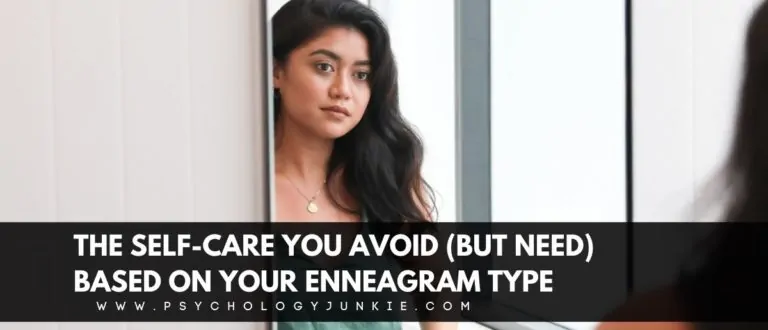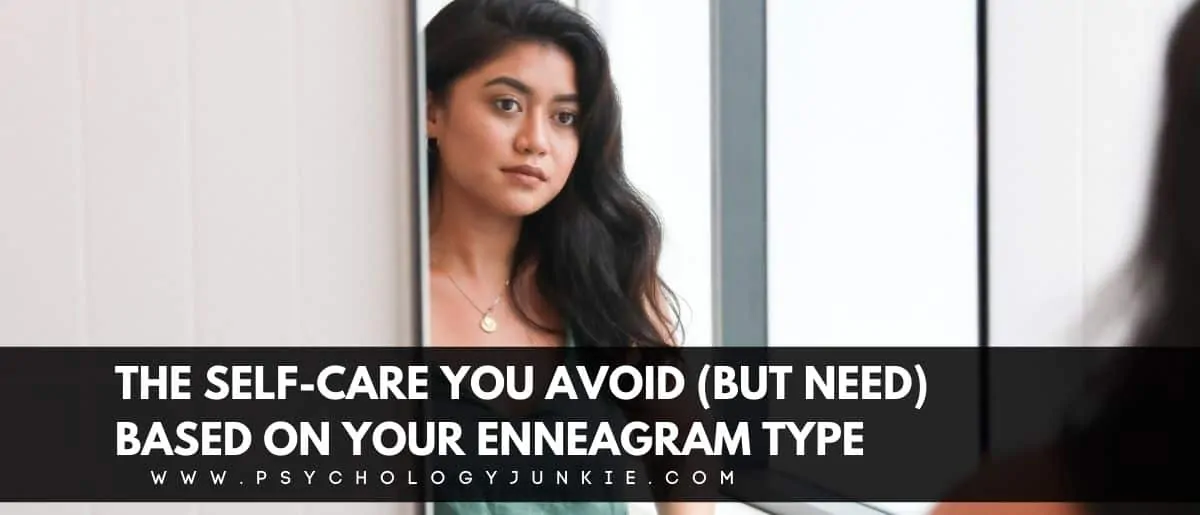The Most to Least Assertive Enneagram Types, Ranked
Have you ever wondered why some people seem to have no trouble standing up for themselves while others hesitate, overthink, or avoid it altogether? It’s not just about confidence or life experience—our personalities play a huge role. As an Enneagram coach, I’ve seen this firsthand in conversations with clients. Some types approach conflict or assertiveness like it’s second nature, while others struggle, torn between their values and the fear of rocking the boat.
Recently, I decided to dig deeper into this. I ran a survey with my email list, followers, and clients—over 80,000 people total—and one of the questions I asked was “Is it easy for you to stand up for yourself?” The responses were fascinating. Almost 1,000 people replied, and the results told a story about how personality shapes our ability to self-advocate. Some of the numbers were exactly what I expected; others, honestly, shocked me.

By the way, if you’d like to take the survey you can do so here.
Here’s a quick peek: Type 8s overwhelmingly said yes—nearly 98% of them find it easy to stand up for themselves. Meanwhile, only 10% of Type 4s felt the same way. That gap made me pause. Why is there such a dramatic difference? What’s happening under the surface for each type that makes standing up for yourself either effortless or almost impossible?
In this article, we’re going to dive into those questions. I’ll break down the data, explore the motivations and fears behind the numbers, and give you practical insights to take away—whether you’re a natural self-advocate or someone who struggles to find their voice. This isn’t just about Enneagram theory; it’s about understanding yourself (and maybe the people in your life) a little better.
So let’s get started!

Not sure what your Enneagram type is? You can find out by taking our questionnaire.
Table of contents
Enneagram and Assertiveness: Who Finds It Easy (and Who Doesn’t)?
#1 – Enneagram 8
97.86% of Enneagram 8s said that it was easy for them to stand up for themselves, making them the most assertive Enneagram type. If Eights had a theme song, it would probably be “My Way” by Frank Sinatra. Their biggest fear is being controlled or betrayed, and their biggest desire is to protect themselves and have control over their own lives. This means they approach life with a fierce drive to stay independent and in charge. When an Eight speaks up, it’s not in a quiet, meek way—it’s clear, direct, and sometimes intimidating.
I grew up with an Eight who showed this assertiveness every day. If anyone so much as hinted at trying to control him, he’d react—fast and hard. One time, a teacher tried to enforce a rule he thought was ridiculous, and his response was basically, “Make me.” He didn’t back down, even when it meant detention. For him, standing up for himself wasn’t optional; it was survival. But I’ve also known Eights who used that same boldness to protect others. One Eight I worked with became an advocate for domestic violence survivors, speaking up for them when they felt powerless. Another volunteered at a shelter, handing out meals and Christmas gifts as a way to bless those less fortunate than himself.
Eights will fight for themselves when they feel their independence or values are threatened. They’re not ones to let someone dictate their choices or undermine their authority. As one Eight put it in the survey, “I’ll respect others’ boundaries as long as they respect mine. But the second someone tries to dominate me, I make it clear they’re out of line.”
Of course, Eights have their blind spots, too. When they’re unhealthy, they can become overly controlling or intimidating, seeing vulnerability as weakness. Their “walls” can keep people at a distance, even when they actually crave connection and nurturing. But when they’re in a healthy place, they use their assertiveness to protect and empower not just themselves but the people they care about
Find out more about Eights: Seven Struggles of the Enneagram Eight Type
#2- Enneagram 7
90.91% of Sevens said that it was easy for them to stand up for themselves, making them the #2 most assertive Enneagram type. If Sevens had a theme song it would probably be “I Wanna Break Free” by Queen. Their biggest fear is being trapped or in pain, and their biggest desire is freedom and happiness. This means that they’ll do what it takes to avoid boredom, stagnation, or responsibilities that seem soul-draining. So when a Seven speaks up, it’s often about dodging anything that feels confining—and honestly, it’s impressive how good they are at it.
I know one Seven who is an absolute pro at this. Conflict isn’t really his thing unless someone flat-out disrespects him. But duties he doesn’t want to deal with? Those don’t stand a chance. He’ll flash his signature grin and come up with an excuse so smooth, you’ll find yourself agreeing before thinking, “Wait, but why?” Meetings, obligations, you name it—if it bores him, he’s out.
He will stand up for himself if he feels like someone is backing him into a corner or pressuring him to do something he doesn’t want to do. Anything that gets in the way of that core desire (happiness, freedom) is anathema to him.
“I won’t let anyone control or micro-manage me,” one Seven respondent said in the survey comments, “I can take care of myself, but I know how to be nice about it.”
Of course, Sevens can have their blind spots. When they’re unhealthy they may be so busy chasing the good times that they avoid dealing with their own pain. At the same time, they might not realize how their actions might affect others. But when it comes to making their needs known? They’re bold, charming, and unafraid to prioritize their own happiness.
At their best, Sevens use their assertiveness and enthusiasm to stick up for others and inspire them. Their joy and energy is contagious, and they blend being optimistic and bold with being productive and helpful.
#3 – Enneagram 1
72.22% of Ones said it was easy for them to stand up for themselves, making them the 3rd most assertive Enneagram type.
If Ones had a mantra, it might be, “Do it right, or don’t do it at all.” They’re driven by a deep desire to be good, ethical, and responsible. Their biggest fear is being corrupt or wrong, so they pour their energy into upholding high standards—for themselves and everyone else. Assertiveness for a One often looks like correcting mistakes, speaking up for what’s fair, or making sure things are done the “right” way.
I once coached a One who couldn’t tell a lie, to the point where she’d admit things that she really didn’t want to say, things that actually hurt other people’s feelings. But she had to be “real” and despised sugarcoating. For her it was all about integrity. She said, “If I can’t be honest, what’s the point of anything?”
For many Ones, sticking up for themselves is about doing what’s right. If they feel genuinely in the wrong, they’ll typically take responsibility (unless they’re unhealthy). But if they see something being done incorrectly or with bad motivations, they’ll likely speak out.
“I use my voice to speak out against injustice,” one respondent stated in the survey, “I’ve protested against policies that would hurt our planet or women or the LGBTQ+ community, and I’ll keep doing it because it’s the right thing to do.” While each One will have different political opinions or values, they will usually have a strong desire to speak up in defense of them.
But what about when Ones are unhealthy? At their worst, they become critical and overly rigid, holding themselves (and others) to impossible standards. But at their best, Ones use their assertiveness to bring order and fairness to chaotic situations. They know how to take a stand for what’s right, even when it’s not easy.
#4 – Enneagram 3
55.55% of Enneagram 3s said it was easy for them to stand up for themselves. Their biggest fear is failure or being seen as incompetent, so they’re wired to achieve, adapt, and excel. When a Three speaks up, it’s often about making sure their efforts are recognized or ensuring their goals aren’t derailed. Assertiveness for them is pragmatic—it’s less about confrontation and more about maintaining momentum and going after their goals.
That said, 44.45% of 3s still found it difficult to stick up for themselves. That’s a pretty high number! Many 3s are focused on image and how they’re perceived and some of them struggle with social pressure as a result. They may “go with the flow” because it might look bad for them otherwise. Other Threes are used to denying their emotions and feelings, repressing them to stay on task. These Threes might struggle to voice their feelings because they’ve repressed them for so long and aren’t even sure what they are anymore.
I worked with a Three who thrived in competitive environments. He told me, “If someone tries to take credit for my work, I don’t get mad—I just make sure everyone knows the truth.” He wasn’t aggressive, but he had a knack for redirecting conversations to highlight his contributions. Efficiency was his priority, and he had no patience for anything (or anyone) slowing him down.
I have another friend who is a Three who finds it difficult to stick up for herself. At work if she’s criticized she legitimately wonders if it’s true and tries to work harder, improving her performance, even when the criticism was unfounded and mean-spirited.
So even though they are a mixed bag, Threes are still one of the more assertive types. They have a knack for speaking up without seeming confrontational. This is in part because they’re skilled at presentation and knowing what people want to see or hear. But their adaptability can sometimes blur their own needs. They can be so focused on external success that they might ignore their emotions until burnout hits. When healthy, though, Threes use their assertiveness to inspire and motivate others, showing that ambition doesn’t have to come at the expense of collaboration.
#5 – Enneagram 5
51.92% of Fives said it was easy for them to stand up for themselves, making them the 5th most assertive Enneagram type.
Fives might not seem like the most assertive types at first glance. They’re often quiet, observant, and a bit detached. But barge in on them and prepare to meet their wrath! Of course, this wrath might come out in mumbled grumbles, or it may come out in an irritated sight, but it’s still there. Their biggest fear is being overwhelmed or depleted, so they’re quick to speak up if they feel their time or energy is being drained.
I remember a Five client who told me, “I’m fine helping people as long as they don’t expect me to drop everything or help out without any warning. If someone tries to push too hard, I just say no.” For him, assertiveness wasn’t about confrontation; it was about staying in control of his resources—whether that was time, energy, or knowledge.
Still, 48.08% of Fives struggle to speak up for themselves, and that’s quite a lot! For many Fives, acting and using a lot of energy to push against others can feel draining. Some will go along with others simply because they see the alternative as potentially more draining.
Fives tend to reject systems or rules that don’t make sense to them, and they don’t shy away from expressing their frustrations. But they can also resist recognizing their physical presence, needs, or feelings at times, and this can mean that they don’t stick up for themselves because they aren’t in touch with themselves enough to know what they really need. Yet at their best, Fives blend their intellectual prowess with action, vision, and focus, having a clear-minded confidence in their perspective.
You can find out more about Fives here: 7 Struggles of the Enneagram Five Type
#6 – Enneagram 6
37.50% of Sixes said it was easy for them to stand up for themselves. That means most Sixes—62.50%—find it challenging. With Sixes, I think subtype has a lot to do with it. Self-Preservation and Social Sixes are far more reliant on authority and their communities, whereas Sexual Sixes are a bit more rebellious and outspoken when they feel put upon or criticized.
The Sixes biggest fear is being without support, guidance, or certainty. Being assertive against an authority or support system that’s been there for them can be extremely difficult for them. Assertiveness, for them, depends on their sense of security in the moment.
I once worked with a Six who said, “I’ll speak up if I know I’m on solid ground, but if there’s any doubt in my mind, I’ll hesitate.”
Sixes tend to weigh potential outcomes, make predictions, question their instincts, and seek out reassurance. Average to unhealthy Sixes tend to distrust themselves, which is why they so often seek out support systems or communities to look to for guidance. This mental juggling act can make it hard for them to take a firm stance, even when they know they should.
But don’t mistake that hesitation for weakness. Once a Six feels secure—whether that’s in their beliefs, their support system, or their knowledge—they can be some of the most assertive and courageous people you’ll meet. One Six respondent said, “When I’m standing up for someone I care about, it doesn’t matter how scared I am—I’ll fight like hell.” Sixes are fiercely protective, and their loyalty shines when the stakes are high.
At their worst, Sixes can second-guess themselves to the point of inaction. They might avoid conflict entirely, fearing they’ll say or do the wrong thing. But at their best, they’re grounded, confident, and brave in their commitment to what matters most.
Discover more about Sixes: 7 Struggles of the Enneagram Six Type
#7 – Enneagram 2
31.25% of Twos said it was easy for them to stand up for themselves. That means nearly 70% struggle with assertiveness. Twos are the helpers, the nurturers, the “What do you need? I’m here for you” people. Their biggest fear is being unloved or unwanted, and their biggest desire is to feel connected and appreciated. Standing up for themselves often feels like the opposite of helping others, which can create a serious internal conflict.
I once coached a Two who told me, “I’ll stand up for everyone else, but when it’s my turn, I freeze. I’m so used to thinking about THEM, when it comes to me I don’t even know what to say.” This is the Twos’ dilemma in a nutshell. They’re so focused on meeting others’ needs that they often ignore their own, leaving them vulnerable to being overlooked or taken advantage of.
That said, when a Two feels genuinely appreciated or supported, they’re more likely to speak up. One survey respondent said, “I’ve learned that I can’t pour from an empty cup. I’m trying to set boundaries—not just for me, but so I can keep being there for the people I love.” Healthy Twos recognize that assertiveness isn’t selfish; it’s mandatory for maintaining their energy and well-being.
When unhealthy, Twos can become passive-aggressive or manipulative, using guilt to express their unmet needs indirectly. But at their best, they model what it means to set boundaries with love and grace. They show us that kindness and assertiveness aren’t mutually exclusive—they’re two sides of the same coin.
Find out more about Twos: 7 Struggles of the Enneagram Two Type
#8 – Enneagram 9
24% of Nines said it was easy for them to stand up for themselves. That leaves a whopping 76% struggling, which isn’t surprising for the type often called “The Peacemaker.” Nines fear conflict and loss of connection, and their biggest desire is inner and outer harmony. For them, assertiveness often feels like throwing a rock into calm water—something they’d much rather avoid.
I know a Nine who said, “I’ll do almost anything to avoid a fight. It’s just not worth the tension.” That “almost anything” can look like agreeing when they don’t mean it, staying quiet when they should speak up, or simply going along with the flow—even if it leads them somewhere they don’t want to go. They’re the masters of keeping the peace, but sometimes at the cost of their own needs and opinions.
When unhealthy, Nines can become so passive that they lose sight of themselves entirely. But when they’re healthy, they’re some of the most grounded, balanced people you’ll ever meet. One Nine respondent shared, “I’ve learned that avoiding conflict doesn’t mean avoiding my voice. I can disagree without causing a fight—it just takes practice.” Healthy Nines bring a quiet strength to the table, showing us that assertiveness can be calm, thoughtful, and deeply respectful.
Find out more about Nines: Seven Struggles of the Enneagram Nine Type
#9 – Enneagram 4
10% of Fours said it was easy for them to stand up for themselves, and this one really surprised me. I was sure 9s would be the type with the lowest percentages, but here we are.
The key to remember in this is that just because it isn’t easy doesn’t mean Fours don’t speak up for themselves. Quite a few Fours commented that they do speak up for themselves, but they face a lot of anxiety and dread in doing so. “I hate being assertive,” one Four said, “but I do it anyway because I need to be real. I can’t just let people walk all over me.”
Fours are the individualists, the artists, the people who bring emotional depth and authenticity to the world. Their biggest fear is being insignificant or flawed, and their biggest desire is to find their unique identity. Assertiveness, for Fours, is often wrapped up in their emotions, which can make it tricky to navigate.
I had a Four client who described it: “I don’t like conflict because it feels like rejection. If someone pushes back, I take it personally.” For Fours, standing up for themselves can feel like putting their heart on the line. If their perspective isn’t valued, it stings in a way that’s hard to shake off.
That said, when a Four is passionate about something—especially something tied to their values or creativity—they can be surprisingly bold. One Four respondent said, “If I feel strongly enough about something, I’ll stand up for it. But I’m so used to being misunderstood, like since childhood, that I’ve stopped expending energy on trying to fight for how people perceive me.”
Unhealthy Fours can get stuck in despair, seeing themselves as fundamentally flawed and powerless. But at their best, they channel their emotional depth into a quiet, powerful assertiveness that’s deeply inspiring. You can find out more about this in my article 7 Struggles of the Enneagram 4 Type.
What Do You Think?
Do these findings resonate with your experience? Do you have any tips or insights to share with others who have your Enneagram type? Let us and other readers know in the comments!
Subscribe to Our Newsletter

Want to discover more about personality type? Get the inside scoop with Susan Storm on all things typological, along with special subscriber freebies, and discounts on new eBooks and courses! Join our newsletter today!













I am a 4 and this doesn’t surprise me at all. I am also an ISFJ and I wouldn’t be surprised if we are low on assertiveness also. Thank you.
Thank you for reading! I’m really glad you enjoyed it
I’m a 4w5, and I tend to be too nice, which makes people take advantage and walk all over me. I was teased/shunned in school, and although this made me angry I didn’t do anything about it. I would’ve liked to physically hurt the kids who harassed me, but I refrained because I didn’t want to get in trouble.